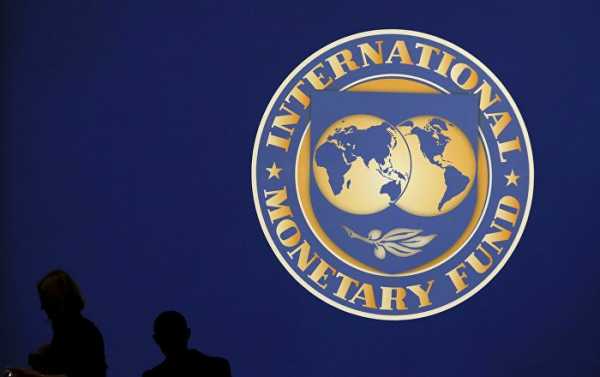
Amidst the overall upbeat sentiment among global policymakers at the elite Davos summit, the IMF’s Managing Director Christine Lagarde warns of several key risks to economic and financial stability.
Kristian Rouz — Managing Director of the International Monetary Fund (IMF) Christine Lagarde says the majority of advanced economies are in good shape, and the nascent acceleration in global economic growth is poised to continue. However, certain downside pressures and risks of incidental economic mishaps persist, she warned, calling for prudency in economic policies.
The IMF’s Lagarde made her remarks at the World Economic Forum in Davos, Switzerland during the closing panel discussion Friday.
“Let’s celebrate what could go right for the moment because we are in a sweet spot,” she said. “All major developed and developing economies are doing well and let’s celebrate that. There may be some policies that may be debated in some parts of the world, but in the end they seem to have worked for now for growth.”
Her remarks met a fair share of scepticism, as some policymakers and financial industry CEOs are calling for caution, pointing to the sky-high valuation of global stocks.
There’s also concern about the enormous burdens of governmental and corporate debt accumulated across the world’s major economies over the past decade in attempts to overcome the consequences of the last global financial crisis.
“I do feel it’s a little bit like 2006,” Jes Staley, CEO of the British bank Barclays Plc, said.
Despite the overall optimistic message, Lagarde, however, warned global financial instability could increase in the near-term.
She pointed to US President Donald Trump’s ongoing fiscal reform — which includes tax cuts and an infrastructure package — as an example of a potentially destabilizing set of policies. On the one hand, Lagarde said, the Trump administration’s fiscal reform will boost US GDP growth, spur economic activity, and lift living standards in the US.
On the other hand, she said, such a massive fiscal stimulus might exacerbate the issue of the US budget deficit, and cause the overheating of the already expensive stock market, which requires a more active monetary adjustment — such as a more aggressive pace in the Federal Reserve’s interest rates hikes.
“While the US tax reforms certainly will have positive effects in the short term, for the US and other countries around, it might also lead to serious risks,” Lagarde said. “That has an impact on financial vulnerability, particularly given the high asset prices that we see around the world, and the easy financing that is still available.”
The second challenge to the global economy, Lagarde said, is income inequality and broader polarization of wealth redistribution. Despite several years of left-wing experimentation in many advanced and emerging economies over the past decade, the issue of inequality has only worsened in the zero-sum game of higher taxation and larger social welfare payments.
Lagarde called on global policymakers to not deprive the younger generation of their earnings through high taxation, instead saying the older generation should contribute more, whilst younger people need to be better supported.
“Beneath the top line numbers, however, there is a worrying trend: the gap between generations in Europe has widened significantly. Working-age people, and especially the young, are falling behind,” Lagarde said. “Without action, the generation may never be able to recover.”
She called for greater budget spending on education and lower labor taxes.
The third risk to the global economy, according to the IMF chief, is a lack of international cooperation, proper diplomacy, and the elevated geopolitical risks. These could potentially lead to outbreaks of war in certain parts of the world, threatening the disruption of trade routes — such as oil pipelines in the Middle East, or oil tanker routes in the South China Sea.
Among other risks to the global economy discussed at the Davos forum was the rise of right-wing politics across the advanced world, which could remodel the global economy by ending mass-migration and the offshoring of industries and capital. Trade protectionism — especially, the US-Chinese tensions in this context — along with the mounting debt in Mainland China was mentioned as well.
The IMF said flash recessions in the near-term have not been completely ruled out for several major economies, while a path forward to ensure medium-term economic sustainability could be a combination of stimulus measures on the fiscal side, and a normalization in monetary policies.
Sourse: sputniknews.com






